- Home
- Types of Addiction
- Alcoholism and Alcohol Dependency
- What Is Alcohol Poisoning?
What Is Alcohol Poisoning?
Alcohol poisoning is a serious health concern, one which can put you in immediate danger and even threaten your life.
Alcohol poisoning is also known as an alcohol overdose, and is a result of the levels of alcohol in blood being too high.
It changes in the way our body’s function.
Despite common assumption, there is no minimum level of alcohol that can lead to alcohol poisoning,
The amount of alcohol required to constitute alcohol poisoning depends on your:
- Age
- Sex
- Height
- Weight
- Rate at which you’ve been consuming the alcohol
For your immediate and long-term health, it is important that you avoid alcohol abuse in order to prevent alcohol poisoning.
When Does Alcohol Poisoning Occur?

Alcohol poisoning usually occurs after binge drinking, when there is too much alcohol in the blood.
This happens when too much alcohol is consumed too quickly, and your liver is unable to process it at a rate which prevents alcohol getting into the bloodstream.
Due to their alcoholic content and strength, the consumption of spirits is a leading cause of alcohol poisoning.
If you have an unhealthy relationship with alcohol, or even an alcohol addiction, you are more susceptible to the dangers of alcohol poisoning, as you are more likely to drink excessive amounts of alcohol with frequency.
What Does Alcohol Poisoning Do?

Alcohol poisoning is when the excessive consumption of alcohol prevents our bodies from functioning as they should, including the brain.
This can cause a variety of symptoms, including changes to your heart rate and state of consciousness.
What Are The Signs Of Alcohol Poisoning?
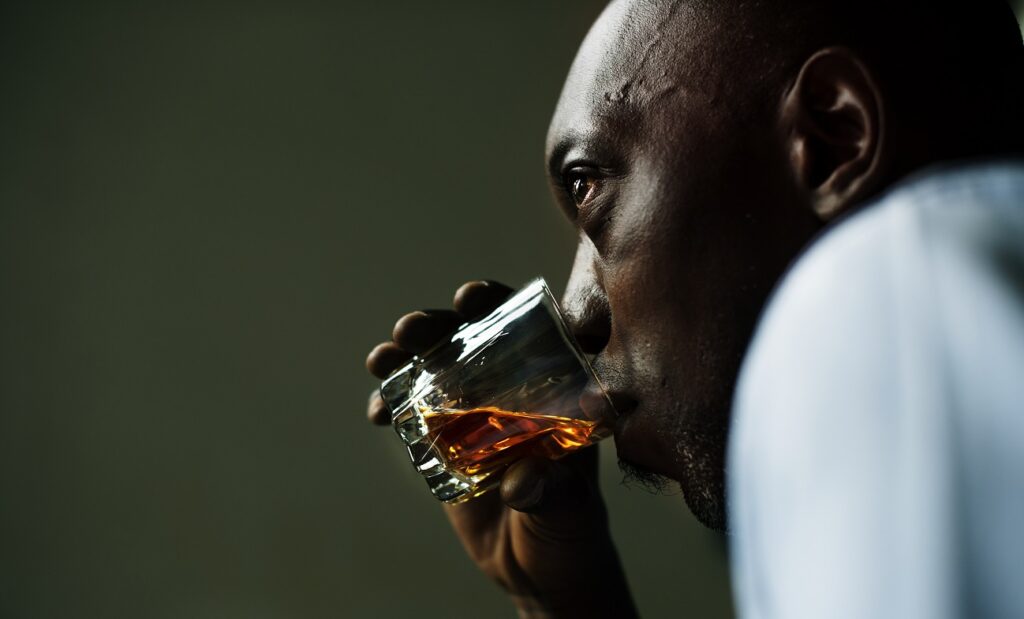
There are many symptoms and signs of alcohol poisoning.
Not all of these pose a direct threat to your health, but taken together they could place you at significant levels of risk.
The signs and symptoms of alcohol poisoning include:
- A decrease in your ability to balance and coordinate your movements
- A change in the pace of your breathing, when it either becomes irregular and erratic or noticeably slower
- A general sense of confusion about where you are, who you’re with, and your ability to keep track of time
- An inability to articulate your speech into coherent sentences, and significant slurring
- Gagging and vomiting
- Falling unconscious, or being conscious but unresponsive
The Risks Of Untreated Alcohol Poisoning
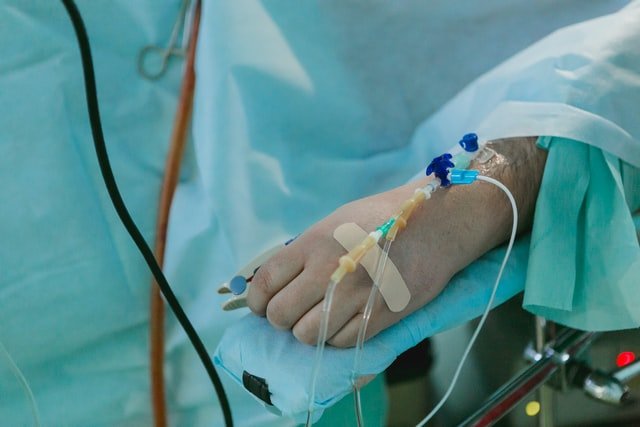
If alcohol poisoning is allowed to progress without treatment it can lead to much more serious outcomes, and can even be life-threatening.
These outcomes are varied, and might not be experienced by everyone.
They include:
- Severe dehydration: Severe dehydration can lead to short- and long-term health conditions. In extreme circumstances, it can cause brain damage.
- Vomit related risks: Excessive vomiting caused by alcohol poisoning can tear the blood vessels which link your stomach to your throat, which can lead to vomiting blood. In addition, especially if you fall unconscious, you run the risk of vomiting in your sleep. This can lead to choking, which can be fatal.
- Seizures: Due to severely reduced blood sugar levels, alcohol poisoning puts you at risk of having fits or seizures. These can cause you to hit your head or suffer other serious injuries.
What NOT To Do When You Witness Alcohol Poisoning
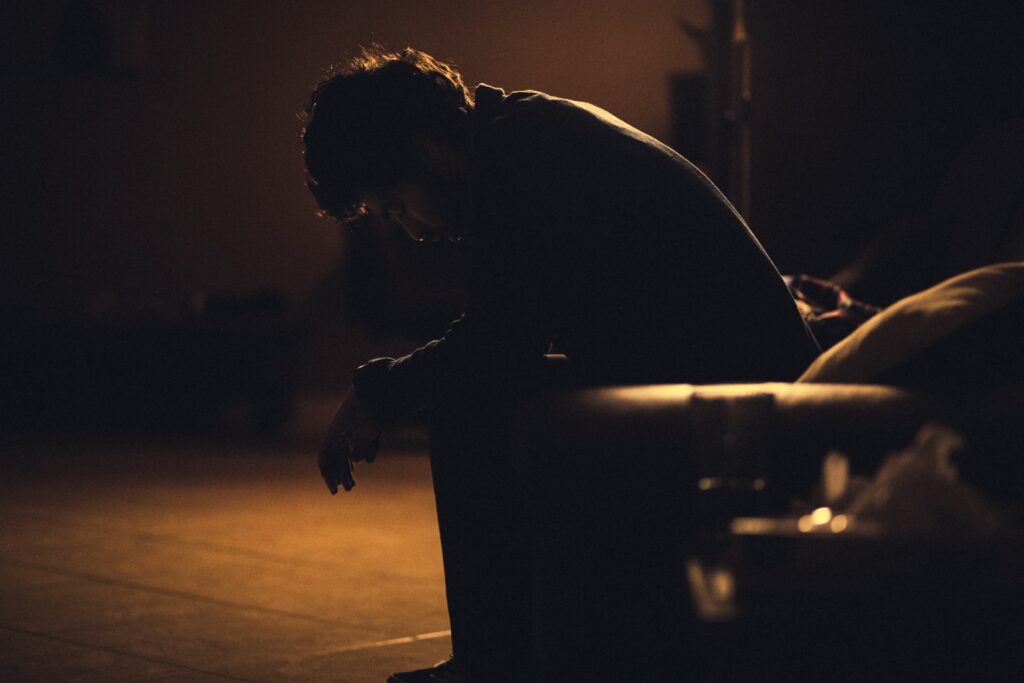
If you witness someone who seems to be exhibiting signs of alcohol poisoning, there are some common misconceptions about what you should do.
These misconceptions can lead to the person with alcohol poisoning being put under increased levels of risk.
To avoid this, here’s what not to do:
- Don’t try to make the person vomit. As the brain is unable to function properly, the person’s gag reflex might not be able to respond properly. If you out your fingers down their throat to trigger vomiting, they might choke on their vomit.
- Don’t place them into a cold shower. While a cold shower can be healthy when you’re sober, and a useful way to wake yourself up, it could put someone with alcohol poisoning into high risk. People with alcohol poisoning already are at an increased risk of hypothermia and struggle to get warm, and a cold shower could compound this or even cause hypothermia.
- Don’t give them a drink of coffee. It might seem sensible to give someone a cup of coffee to try and bring them back to alertness. However, caffeine dehydrates the body, and someone with alcohol poisoning is already at risk of severe dehydration.
- Don’t let them continue to drink alcohol. Allowing someone with alcohol poisoning to continue drinking will increase the amount of alcohol in their blood, placing them at an even higher level of risk.
When Should I Seek Medical Help For Alcohol Poisoning?
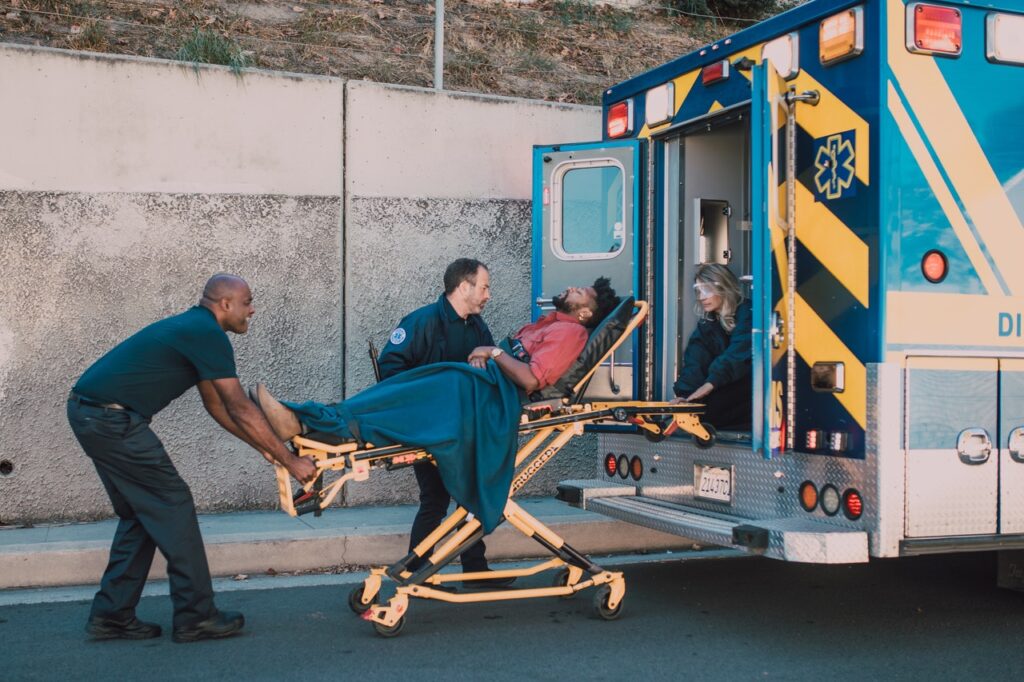
If you suspect that someone, or even yourself, might be suffering from alcohol poisoning, you should call for medical assistance by ordering an ambulance.
This might seem like an overreaction, but it is a sensible measure to take.
While you wait for medical assistance, you should keep the person warm, and keep them upright and awake.
If the person has passed out, you should lay them onto their side in the recovery position to ensure they don’t choke on their vomit, while regularly checking their heartbeat.
How To Prevent Alcohol Poisoning?

Binge drinking is one of the biggest causes of alcohol poisoning, and binge drinking most often occurs at social events like parties.
If you are attending a social event where you know you will be drinking more than two 4 or 5 units, you should also consider drinking a non-alcoholic alternative in between alcoholic rounds.
This way, you can still feel involved with the party, but you will reduce your risk of alcohol poisoning, and give yourself a break from ingesting alcohol.
While they can be tempting, it is also wise to avoid rounds of shots.
One double shot of vodka is the equivalent of drinking a whole pint of beer.
These can quickly add up, spiralling out of control as you lose track of the number of shots you’ve had.
Five double shots can be drunk within the space of five minutes, but will equate to drinking five whole pints of beer – so keep track of what you’re drinking and be careful.
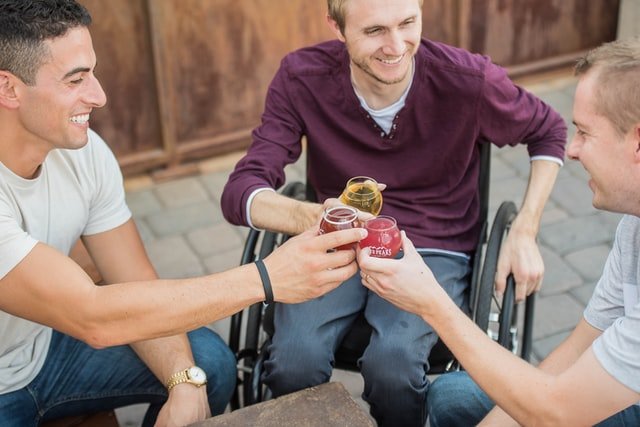
Outside of parties and social events, the best way to avoid exposing yourself to the risk of alcohol poisoning in the long term is to keep track of the amount of alcohol you are consuming.
Avoid consuming excessive amounts of alcohol in one sitting, and try to stick to the UK Chief Medical Officer’s guidelines.
These guidelines recommend drinking no more than 14 units a week, with that amount spread over at least 3 days.
This means you should drink no more than 4 and a half units a day, for no more than 3 days a week.
If you find yourself regularly drinking that amount more than 3 days a week, or that you are regularly drinking more than 14 units a week, you could be at risk of alcohol poisoning and you should assess your relationship with alcohol and consider reducing your intake.
Get Help With Alcohol Addiction

If you struggle to reduce your intake without experiencing cravings, this is a strong indication that you have begun to develop a dependency or addiction to alcohol.
In this instance, you should seek professional support for help in cutting down.
The best way to beat addiction is to get the right help and get it as soon as possible.


